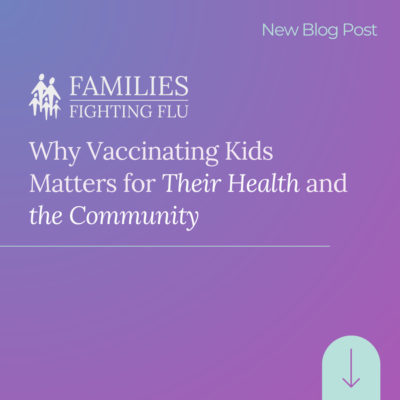
- Flu Vaccine Information
Flu Vaccine Q&A: Flu Vaccine Effectiveness

You might think the annual flu vaccine doesn’t work because of the flu vaccine effectiveness percentage. During the 2019-2020 flu season, that number was 39%. But that doesn’t mean it was only 39% effective…
Flu vaccine effectiveness is an average of how many vaccinated people go to the doctor for flu treatment compared to unvaccinated. It doesn’t take into account flu hospitalizations and deaths avoided by getting vaccinated.
What is flu vaccine effectiveness?
Flu vaccine effectiveness is an average of how many vaccinated people go to the doctor for flu treatment compared to unvaccinated. This one number does NOT take into account how flu hospitalizations and deaths are also avoided by getting vaccinated.
The vaccine effectiveness number, like the 39% from the 2019-2020 flu season, is an average for all flu strains across all age groups. So, the flu vaccine could be more effective at preventing doctor’s visits in younger people than in older people, or for a type of influenza A vs influenza B, but that one number averages all the data.
What are other measures of flu vaccine effectiveness?
In addition to the flu vaccine effectiveness average for each year’s vaccine, there are other vaccine effectiveness studies that show that flu vaccination has great benefits. For example:
- Pregnant People Hospitalizations: Flu vaccination during pregnancy can prevent flu-related hospitalization by 40%
- Infant Hospitalizations: Flu vaccination during pregnancy can reduce an infant’s chance of being hospitalized by 91%
- Child Deaths: Flu vaccination can reduce pediatric deaths in otherwise healthy children by 65%
- Adult Hospitalizations: Flu vaccination can reduce adult hospital admissions by 37%
- Adult ICU admissions: Flu vaccination can reduce adult ICU admissions in adults by 82%
- COPD Hospitalizations: Flu vaccination can reduce hospital admissions for people with COPD by 38%
- Diabetes Hospitalizations: Flu vaccination can reduce hospital admissions for people with diabetes by 79%
- Asthma Attacks: Flu vaccination can prevent up to 78% of asthma attacks that lead to ER visits and hospitalizations
- Heart Disease: Flu vaccination can reduce experiencing a heart problem by 13% and dying of heart problems by 18%


